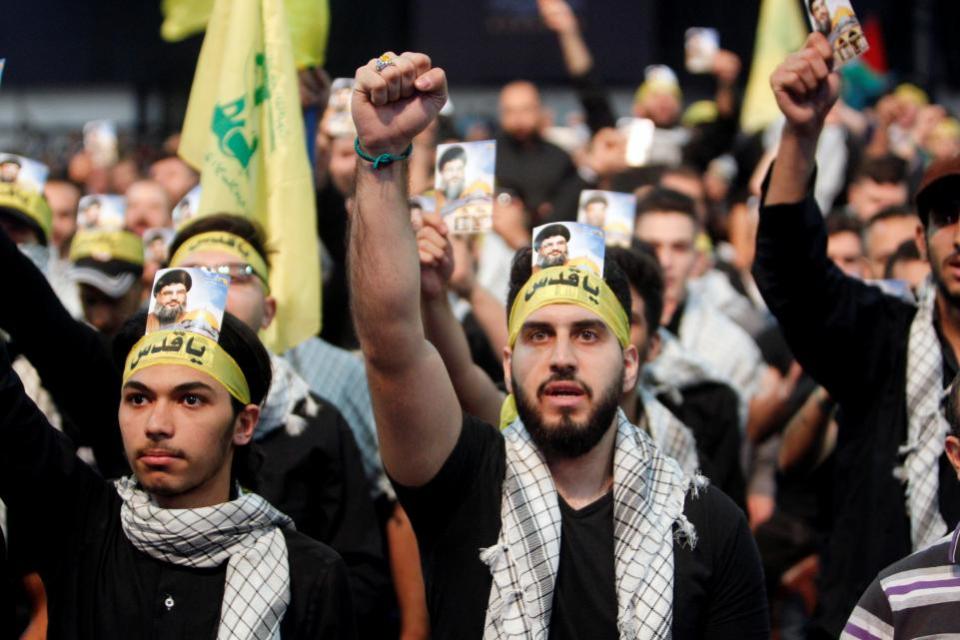How Israel Must Battle Hezbollah’s Perception Campaign
Eleven years after the Second Lebanon War, Israel’s Lebanese border is relatively quiet. Hezbollah is exhausted in the Syrian civil war and is, for now, deterred from engagement with the Israeli military. But in the absence of ground fighting, the battlefield has been transferred to another arena. Hezbollah has stepped up its campaign on the cognitive front and wages a war of perception and influence against Israel.
In that environment, the Israeli security apparatus must enhance its strategy to both shield the home audience from enemy manipulation and prepare for military confrontations in which cognitive elements will be a part of warfare.
In recent months, Hezbollah has been orchestrating a new round of fighting against Israel—a fight without fire, but a battle of heavy messages and powerful images. This current campaign circles around two new major threats: First, Hezbollah claimed it can target Israel’s alleged nuclear reactor in Dimona with precision missiles, turning it into an existential threat to Israel.
Second, Hezbollah chief Hassan Nasrallah threatened to extend a future campaign against Israel to the Syrian territory and open the gate to “hundreds of thousands of (Shiite) fighters from across the Arab and Muslim countries.” Both threats were complemented by social media campaigns and huge boards on the Israeli-Lebanese border, depicting Iranian Supreme Leader Ayatollah Ali Hosseini Khamenei declaring: “We are coming!”
Psychological manipulation and propaganda has always been a part of war. What has dramatically changed, though, is the technological ability to target a variety of broad audiences with pinpointed accuracy. Through various channels such as social media, web outlets and even planting “fake news” in the mainstream media, states, groups or individuals can manipulate the perception of their target audience and affect their behavior. The mind has become an inherent part of the battlefield of the 21st century and cognitive security is now an urgent necessity for national security.
Hezbollah’s current cognitive campaign reflects Nasrallah’s understanding of the Israeli security discourse, threat perception and psyche in that matter. In times when Israel is highly worried over the growing presence of Iran and its Shiite militias in Lebanon and Syria, a Shiite invasion under Iranian command clearly signals a major security concern for Israel. Moreover, Hezbollah’s threats of a gas attack by targeting Israel’s Ammonia tank in Haifa, a possible nuclear fallout in Dimona and the invasion of Shiite militias—all are trying to play to what is perceived by Hezbollah as the deepest historical fears of the Jewish-Israeli people.
Hezbollah’s ongoing cognitive campaign against Israel has three major strategic goals. First, since 2006 neither Israel nor Hezbollah are interested in military confrontation, so current rhetoric aims at deterring the Israeli military from acting. Second, Hezbollah’s heavy entanglement in the Syrian civil war limits Hezbollah’s ability to confront the Israeli enemy. The cognitive arena serves as alternative battlefield to exhaust Israeli financial resources, disrupt the Israeli decision-making process and limit Israel’s operational freedom.
Ultimately, Nasrallah’s cognitive campaign aims at his domestic audience. Hezbollah suffered substantial losses in the Syrian civil war. This projected war serves both as a booster to the morale of its own fighters and at establishing domestic legitimacy for the intervention on the side of Assad and Iran. On that basis, it is logical that these campaigns are also held in Arabic.

While in peace-time Nasrallah’s threats are belittled or even ignored by the Israeli public, in war-time it could affect the public and military’s morale and, thus, impact on Israel’s planning and operations. In future confrontation, the cognitive element will be integrated into Hezbollah’s strategy and operated in a sophisticated manner not only toward the Israeli audiences. Hezbollah will try to manipulate the perception of events, to disrupt Israeli military operations on the battlefield and undermine Israel’s political standing in the world.
To cope with Hezbollah’s cognitive campaigns, Israel should adopt an integrated strategy to contain the effect on Israeli audiences. Such a strategy would combine defensive and offensive measures aimed at neutralizing attempts and diverting them back to Hezbollah’s own audience. Israeli intelligence should identify the planning of Hezbollah’s cognitive campaigns, target their production chain and disrupt their attempts. Additionally, intelligence should consider exposing the enemy’s activities to relevant audiences, both Israeli and non-Israeli, and, thus, neutralize and revert them. Finally, the Israeli military should conduct offensive cognitive campaigns to target Hezbollah both operationally and strategically.
The army cannot and should not deal with the civil implications of Hezbollah’s cognitive campaigns. This should be done by civil organizations, which Israel lacks today. It is therefore highly recommended to establish a National Center for Cognitive Security to conduct both defensive and offensive campaigns in coordination with other relevant agencies.
The mind has become the battlefield of the 21st century and technology a major instrument of manipulation, and cognitive security should be of the highest relevance to Israel's national security.
Dr. Gabi Siboni is the senior researcher and the director of Cyber Security Program at the Institute for National Security Studies (INSS). Hannes Pichler is a guest research associate, also at the INSS.
Related Articles


